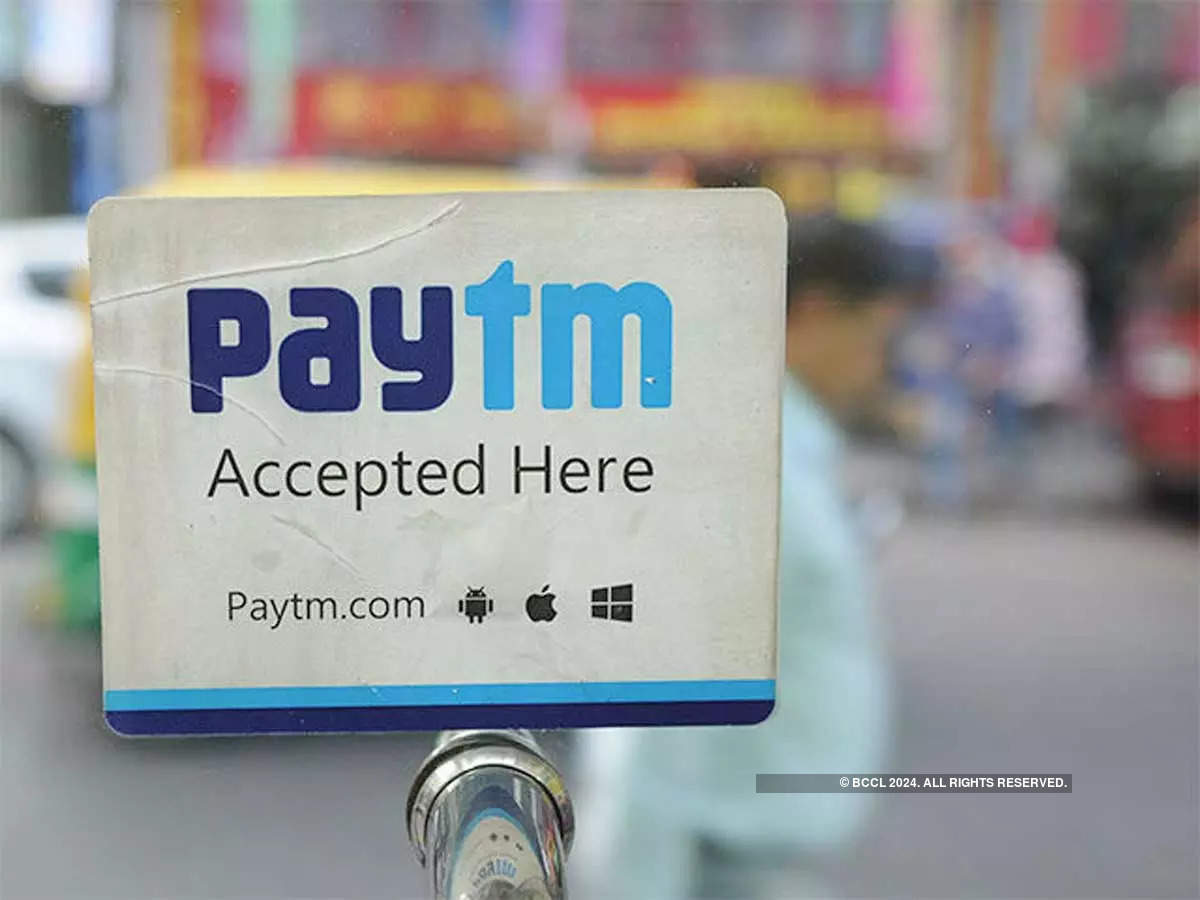ED investigates at least 10 crypto exchanges; fintech companies want clarity in new lending rules

Also in this letter:
■ Fintech firms seek clarity on some of RBI’s new lending rules
■ AIFs due to closure struggle to sell stakes in startups
■ The Zandu family Nihar Parikh sets up a family office for efforts in the healthcare system
ED probes 10 crypto exchanges in Rs 1,000 crore money laundering case

The Enforcement Directorate (ED) is investigating at least 10 cryptocurrency exchanges for allegedly laundering more than Rs 1,000 crore identified as proceeds of crime from firms under investigation in the Chinese instant loan app case, sources told us.
The probe has uncovered instances of the accused firms approaching the exchanges to buy crypto-coins worth more than Rs 100 crore and crypto-coins being sent to international wallets, they said. The exchanges did no enhanced due diligence and even failed to record suspicious transaction reports (STRs), the sources added.
The ED is expected to question officials from the crypto exchanges under investigation again next week, an industry executive said.
In many cases, know-your-customer (KYC) details collected by the exchanges were found to be questionable, another source said. “They were traced to some people living in remote areas or a tier-2 or tier-3 city, without any connection with the transactions,” the person said.
ED tracks the Twitter row: ED is closely following the recent public spat between WazirX CEO Nischal Shetty and Binance CEO Changpeng Zhao on Twitter.
“Both have been approached to answer a fundamental question about who is responsible for maintaining the details of the 1.15 million accounts on the exchange. The two have shifted the blame to the other on issues related to accountability and non-compliance,” said a well-known official.
Repercussions: The Binance-WazirX debacle has cast a new question mark over the Indian crypto ecosystem amid a bear market and an aggressive tax regime that is stifling growth, crypto exchanges, retail investors and startups said.
“This fight affects the crypto market, including the investors. This kind of action gives a negative impression to the whole ecosystem, but the problem seems to be reversible. Either they need to complete the transaction or reverse the transaction and should publicly identify owners,” said Sathvik Vishwanath, co-founder and CEO, Unocoin.
Fintech firms will seek clarity on some of RBI’s new lending rules

Fintech industry bodies, including the Digital Lenders Association of India (DLAI) and the Fintech Association for Consumer Empowerment (FACE), are gathering input from member firms to seek clarity from the Reserve Bank of India (RBI) on its new digital lending guidelines, sources said us.
These bodies will continue consultations on various aspects of the guidelines, such as the first loss guarantee (FLDG) and the creation of a self-regulatory organization (SRO).
Catch up quickly: On Wednesday, the RBI issued its first set of guidelines for banks and non-bank borrowers using digital lending apps, to bring such services under stricter supervision. The central bank also sent a list of recommendations to the government, such as passing a law to ban unregulated lending.
Seeking clarity: “I’m sure over the next few weeks we’ll see questions come up from our members about what to do with their ongoing FLDG and other partnerships because there’s no clarity on that,” a payments industry insider said on condition of anonymity. “We will seek clarity from the regulator on some operational aspects and when it wants to formalize the SRO structure.”
Guidelines: According to the RBI’s new guidelines for digital lending, only regulated entities such as banks and shadow banks will be allowed to disburse and collect repayments on loans, and this will not be left to third parties.
The fee paid to apps will now have to be borne by lenders and not borrowers, it added.
The RBI also addressed concerns over data collection. “Data collected by DLAs (digital lending apps) should be needs-based, should have clear audit trails and should only be done with the explicit prior consent of the borrower,” it said.
It also banned automatic increases in credit limits without the express consent of the borrower, and said interest and other charges must be clearly communicated to the borrower.
AIFs due to closure struggle to sell stakes in start-ups

Alternative investment funds (AIFs) scheduled to be liquidated in the coming months have struggled to sell their stakes in unlisted ventures and startups as investors shy away from risky investments due to tightening liquidity.
Generally, these Category I and Category II AIFs are registered with India’s capital markets regulator, the Securities and Exchange Board of India (Sebi).
Once a closed-end AIF’s life cycle is complete, the fund manager is required to liquidate its holdings within 12 months and distribute the proceeds to investors.
However, most of these AIFs are either not interested in selling their holdings or have not been able to find buyers at the desired valuation due to liquidity-related challenges.
As central banks around the world trim their balance sheets, fund flows to unlisted companies, especially technology-driven startups, have been adversely affected.
Some of the AIFs have now asked Sebi to extend the liquidation period by another two years until the private market funding scenario improves, people with direct knowledge of the matter said.
The Zandu family Nihar Parikh sets up a family office for efforts in the healthcare system

Nihar Parikh, Founder of 4point0 Health Ventures
Nihar Parikh, who sold his family-run business ZCL Chemicals (formerly Zandu Chemicals) to private equity fund Advent last year, has launched a health-focused fund 4Point0 Health Ventures that will make early stage investments in start-ups.
The family office will deploy around $75 million in the sector, Parikh said in an interview with ET.
Since January, 4Point0 Health Ventures has funded business-to-business platform Saveo, digital therapeutic startup Fitterfly, elective surgery provider Glaymo Health, and Eka Care, which digitizes the health records of patients.
The Mumbai-based family office is looking to invest anywhere between $1-2 million in seed to Series B funding rounds. Depending on the stake, Parikh said, the fund will either take a board seat or sit on the startup’s advisory committee.
CSC stops operating and maintaining BharatNet equipment over unpaid dues

The government’s Common Service Center (CSC) — which provides e-services to rural and remote regions — has stopped operating and maintaining BharatNet’s fiber optic cables and other equipment following failure to clear dues from Bharat Broadband Network Ltd (BBNL), multiple sources told us .
CSC is a special purpose vehicle set up by the Ministry of Electronics and Information Technology under the Companies Act, 1956. BharatNet is a government initiative to connect all 600,000 villages in the country to high-speed internet through an optical fiber network.
CSC stopped operation and maintenance (O&M) work for BBNL in June after the contract between the two parties was terminated, sources said. An audit of the O&M work carried out by the CSC is currently underway after which the dues, which have been pending for more than a year, will be released, the sources added.
O&M of the fiber optic cables laid by various agencies under BharatNet is a significant source of income for CSC’s Village Level Entrepreneur (VLE), said a senior government official.
TODAY’S TWEET
ETtech ready-made offers

Customer engagement and user retention software platform Clevertap has raised $105 million in a Series D funding round led by global investment group CDPQ. We had reported on August 9 that the company was looking to raise $75 million from CDPQ and IIFL at a valuation of $750-775 million.
Lysto, a web3 startup that provides tools to gamers, has raised $12 million (roughly Rs 95 crore) from Square Peg, Beenext, Hashed, Tiger Global and Better Capital. Angel investors including Balaji Srinivasan (ex-CTO, Coinbase), Paul Veradittakit (Partner, Pantera Capital), Binny Bansal (Founder, Flipkart) and Bobby Ong and TM Lee, (Co-Founders, CoinGecko), also participated in the round.
Other top stories by our reporters

Paytm partners with Piramal Finance: One 97 Communications, the parent company of digital payments firm Paytm, has joined forces with Piramal Capital and Housing Finance to expand its trade lending business to small towns and villages, according to a regulatory filing with stock exchanges on Wednesday.
ESRI India completes majority stake transfer to country’s MD: The India arm of global Geospatial Intelligence Software (GIS) technology provider ESRI has completed the process of majority stake transfer to Agendra Kumar, its country CEO, to comply with the government’s updated geospatial policy. ESRI India has also started offering GIS solutions from the Indian market to global customers.
Glance Gaming Doubles MAUs in Six Months: Glance Gaming, a unit of consumer networking company Glance, has seen its monthly active user base double and its daily active user triple over the past six months, a top executive told ET. Yashashvi Takallapalli, vice president of gaming at Glance, also said that women make up over 40% of Glance Gaming’s user base.
Global elections we read
■ Big Tech tried to stop Russian propaganda. Russia found a loophole. (The Washington Post)
■ How e-commerce is bringing the sari back in Pakistan (Rest of the World)
■ More than a third of American teenagers are on social media almost constantly, survey says (WSJ)























